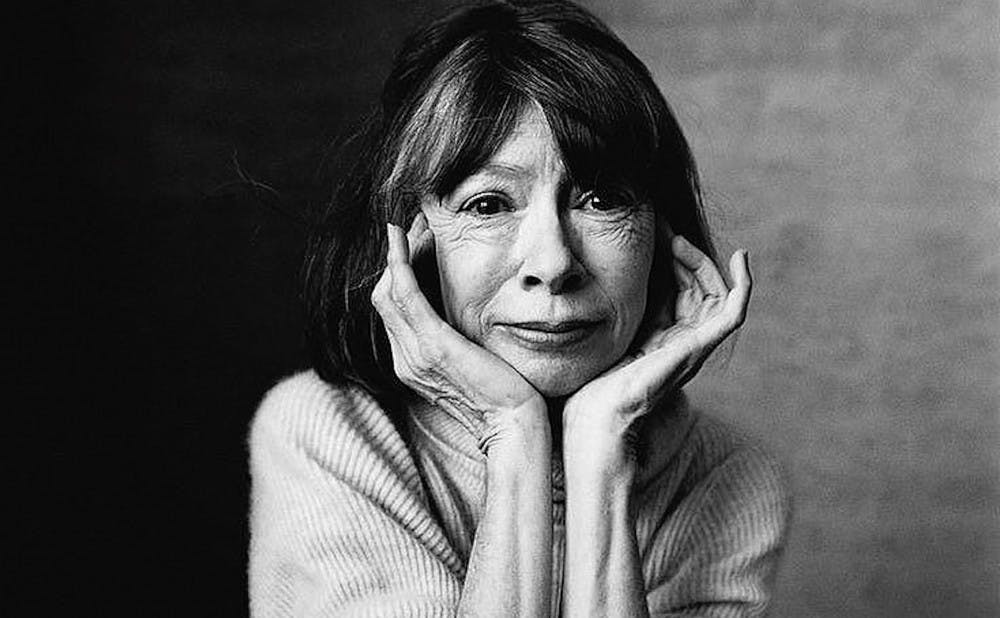A 20-something writer from Sacramento lands in New York after winning a college essay contest. She is to work for Vogue. In the beginning, she is young and amazed by everything in the city, though soon she will grow unbearably tired of it. She will move back to her home state and write for an assortment of magazines, producing the contents of what will eventually become “Slouching Towards Bethlehem.” “Play it As it Lays,” a novel, and “The White Album,” more essays and reporting, will follow. She will give voice to the confusion of the 1960s and 1970s, that sense of unraveling egged on by Charles Manson and the Vietnam War. At the age of 70, she will win a National Book Award for “The Year of Magical Thinking.” By that time, she will already be a literary giant. And in October 2017, a documentary charting her life, aptly titled “Joan Didion: The Center Will Not Hold,” will be released on Netflix the same day as the second season of “Stranger Things.”
Didion’s body of work is full of deeply personal accounts of emotional unraveling and full-bodied dread. It incorporates all manner of experience from her life. Quite simply, she is the subject of her own work.
And this poses the question: Is there anything left for a documentary filmmaker to mine from the author’s life, from her memories, that hasn’t already been dug up by Didion long before? As an essayist, her primary subject for the last 50-plus years has been herself — her dread, her grief, her country. And in her work as a journalist, each new observation, rendered in her beautifully-constructed, unsparing prose, is thoroughly filtered through Didion’s own perspective. Her life is all there, wrapped up in her novels, her essays, her reporting.
“The Center Will Not Hold,” however, is well worth the watch. The director is actor Griffin Dunne, Didion's nephew. If you've seen “An American Werewolf in London” or Martin Scorsese’s “After Hours,” Dunne's name, or, at least his face, will be familiar. He is, perhaps, the only director capable of saying something new about Didion — even if it what is new comes in the form of an unabashed, film-bound love letter.
Dunne mostly stays out of his camera's way, his presence made known in the form of a somewhat distinctive voice, prodding Didion about the past. At times, he acts as narrator, but there is a personal quality to everything he says. This is his family history, too, and he treats it as such, with a kind of reverence and glazed-over wistfulness, even nostalgia.
There's one scene in which the two of them, together on her couch, look over a photo album and talk about the first time they met. The story involves a wardrobe malfunction on the part of a young Dunne. As she remembers where the story is going, her gaunt, thoughtful face curls into a wide grin. The image is something far removed from that ever-iconic, black-and-white photo of her staring at the camera, expressionless, cigarette between her ring and index fingers, daughter and husband in the corner of the frame. This is the overarching virtue of the documentary: We are allowed a familial, looser side of a writer whose public image has often mirrored her prose in its overwhelming control and inexplicable mystique.
Dunne, for his part, tells Didion's story with immense respect. The documentary is as much a love letter to his aunt as it is a critical examination of her work. And it's more the former than the latter. He focuses primarily on Didion’s most recent grief-centered writing and her work from the 1970s. The stuff in between, mostly political journalism and a handful of novels, is passed over relatively quickly, so that it gives the impression of being filler. The film is at its most compelling when it centers directly on Didion as she probes her own work and reads her prose in a flat, perfectly-fitting kind of monotone that ebbs and flows only ever so slightly.
It is impossible to determine whether it’s the result of her comfort with Dunne or her age, but the contrast between Didion’s general demeanor at 82 and that of the author as a young woman, shown through a series of press clips, is striking. Back then, everything was controlled. Perpetually clad in a pair of surprisingly large sunglasses, she’d calmly field the interviewer’s questions, every motion a deliberate one. The perfect image of a young, too-brilliant-to-care author doing press. In “The Center Will Not Hold,” nearly all of Dunne’s questions immediately elicit a series of broad gesticulations on the part of Didion, as if she’s grasping for something in the air, searching through the past for the right answer. For the most part, everything is still controlled; the answers are thoughtfully constructed and rarely betray a kind of emotional undertone. Dunne’s achievement is to have produced a filming environment in which Didion can comfortably reflect on her process and personal life — which are, often times, one in the same.
And this is no small achievement. After all, the most qualified person to write or talk about Joan Didion has always been Joan Didion.
Get The Chronicle straight to your inbox
Signup for our weekly newsletter. Cancel at any time.

